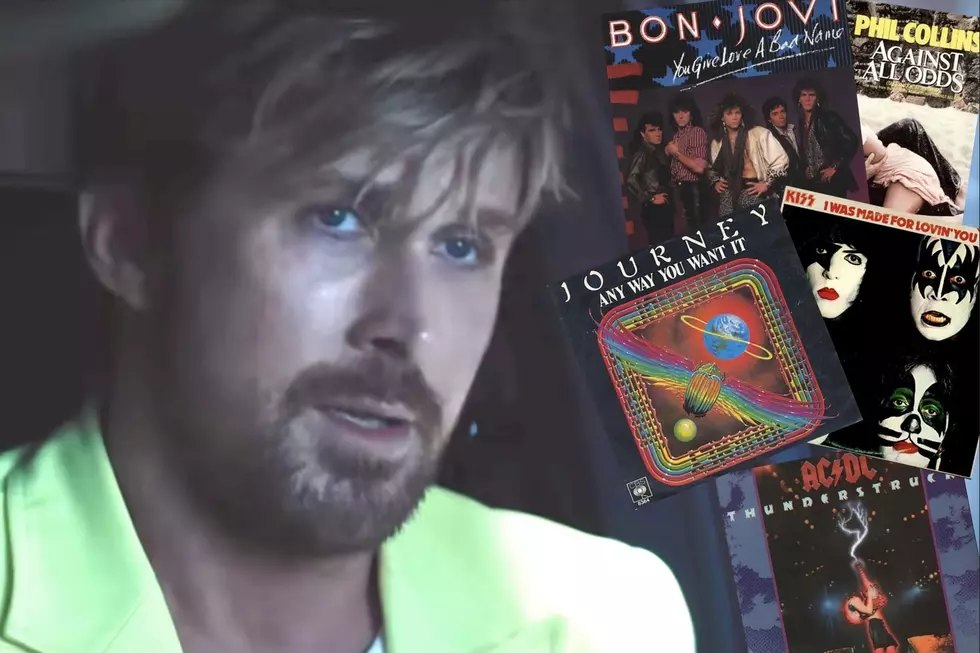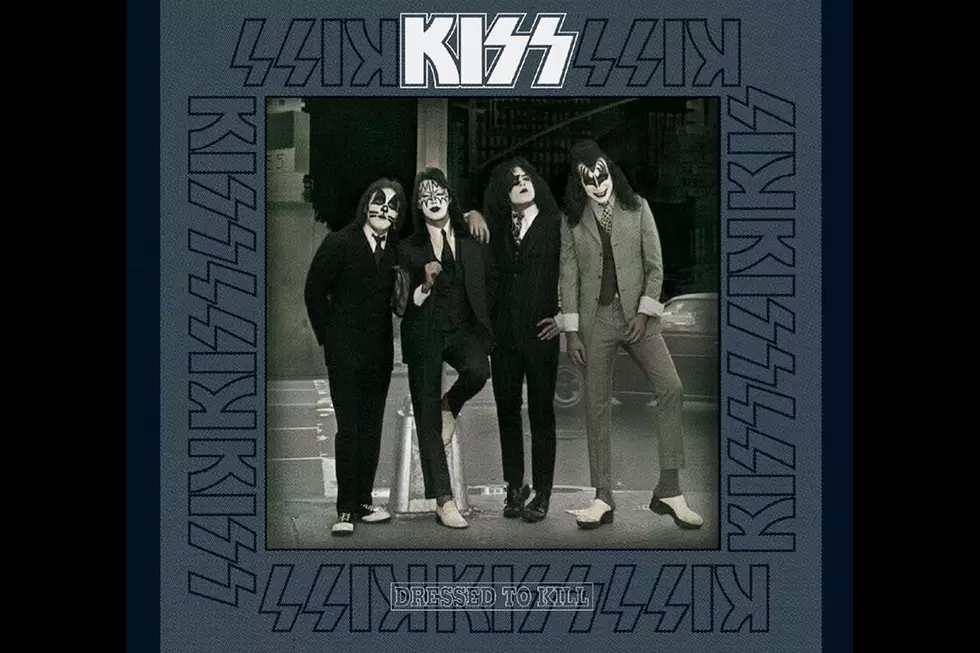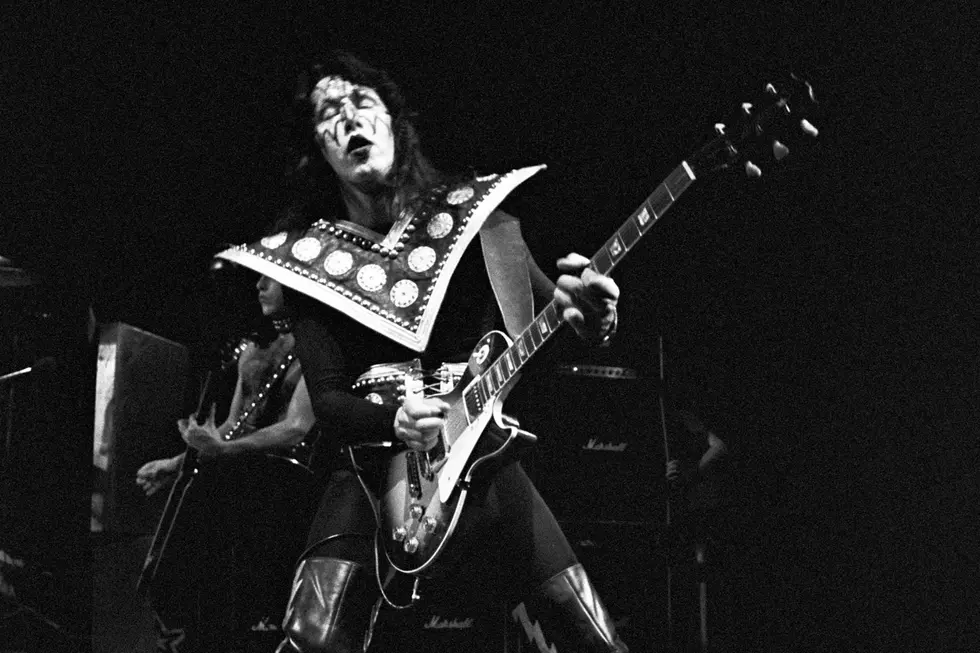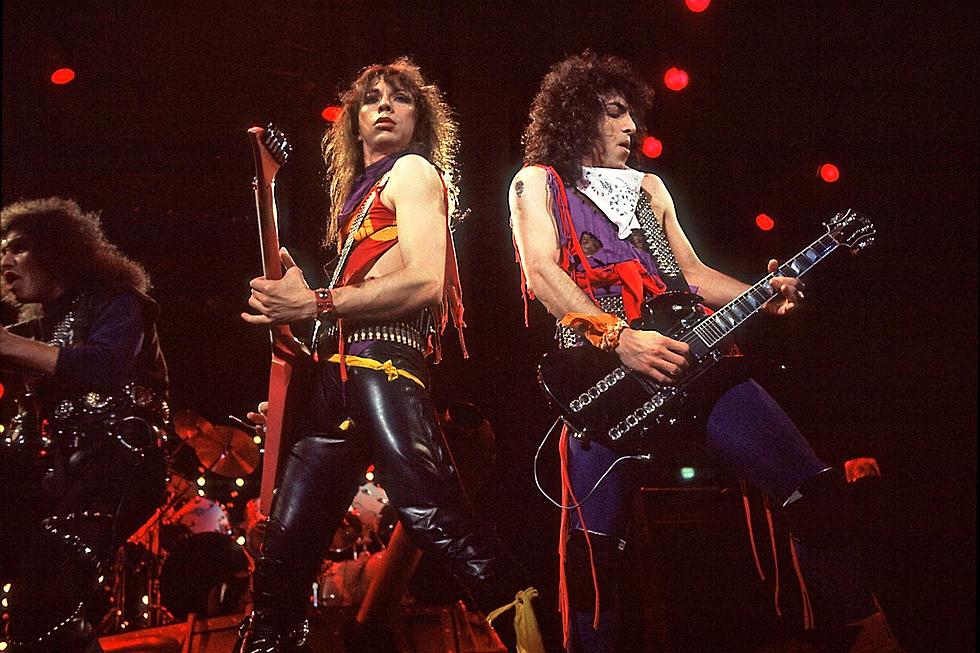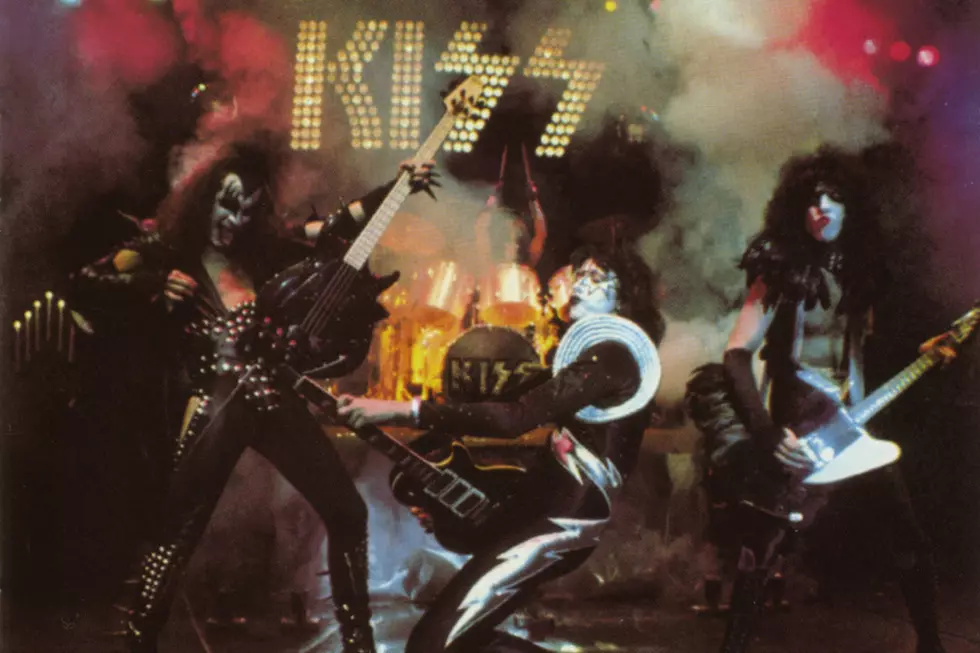
How Kiss Came ‘Alive!’ by Using Some Studio Magic
Kiss' first concert album, Alive!, couldn't have become a hit at a better time for the band. Three albums in, the flamboyant group had yet to crack the Top 30 and was reportedly living off of manager Bill Aucoin's credit card.
But then Alive! shot to No. 9 following its release on Sept. 10, 1975, powered by the sense that the band's explosive energy had finally been captured on vinyl. "It was a party," drummer Peter Criss told VH1. "It was an event." It was also Kiss' first gold record and label Casablanca's first-ever Top 10. The group would string together an unbroken series of platinum recordings for the rest of the '70s.
But even now, all these years later, we still don't know how much of Alive! is actually, you know, live.
Made during an era when overdubs were more rare, the album has since come under scrutiny. There have been questions about whether Gene Simmons and Paul Stanley re-recorded parts after the fact, and there are even accusations that the cheers from the crowd weren't exactly authentic. (The Rolling Stone Album Guide makes particular mention of "fake-sounding audience noise.")
Producer Eddie Kramer has been honest about the post-production work. "We had to create that album from the live shows with overdubbed guitar, because of the fact that Kiss puts on a great show with much leaping about," he told Mars Music in 1998. "Obviously, guitars will not stay in tune and accuracy goes right out the the window. So, you fix what's not right."
Listen to Kiss Perform 'Cold Gin'
They actually attempted to capture something more genuine. Kiss recorded a series of concerts in the summer of 1975, trying to find the right mixture of energy and precision. "We went back and listened to it, and no one liked anything," Aucoin told VH1. "The truth of the matter is, after we did those four or five shows that we recorded live, we still didn't have it."
Kramer concluded that the initial Alive! album "had the most amount of 'fixing' done to it" of any of the band's live albums – to the point where only Criss' drum tracks were presented without additional overdubs.
Ace Frehley, in his 2011 memoir No Regrets, said the process took a bit of getting used to.
"We all went into Electric Lady [Studio], and for the better part of three weeks we tinkered and tweaked – and sometimes completely overdubbed songs," he wrote. "None of us got off the hook completely. There were times when Eddie was unhappy with Paul's singing or Gene's singing. ... As the studio sessions went on we became increasingly flexible in terms of what we considered to be acceptable doctoring."
Listen to Kiss Perform 'Rock and Roll All Nite'
Simmons, speaking to VH1, said Kiss' onstage performances at that time were simply too untamed to expect complete and flawless takes. "In those days, I'd be taken over – I'd be possessed, and I'd make tons of mistakes on my bass," he said. "I remember talking back stage with the guys, and everybody agreed that we would jump around less – that we would try to hit the notes more."
Kiss didn't quite accomplish that particular goal. But fans – whether they knew about the post-production fixes or not – helped the band toward another one: superstardom.
Stanley, in his 2014 book Face the Music: A Life Exposed, made no apologies. "Yes, we enhanced it – not to hide anything, not to fool anyone," he said. "But who wanted to hear a mistake repeated endlessly? Who wanted to hear an out-of-tune guitar? For what? Authenticity?"
Kiss Lineup Changes: A Complete Guide
Kiss Released One of Rock’s Most Hated Albums
More From Ultimate Classic Rock
